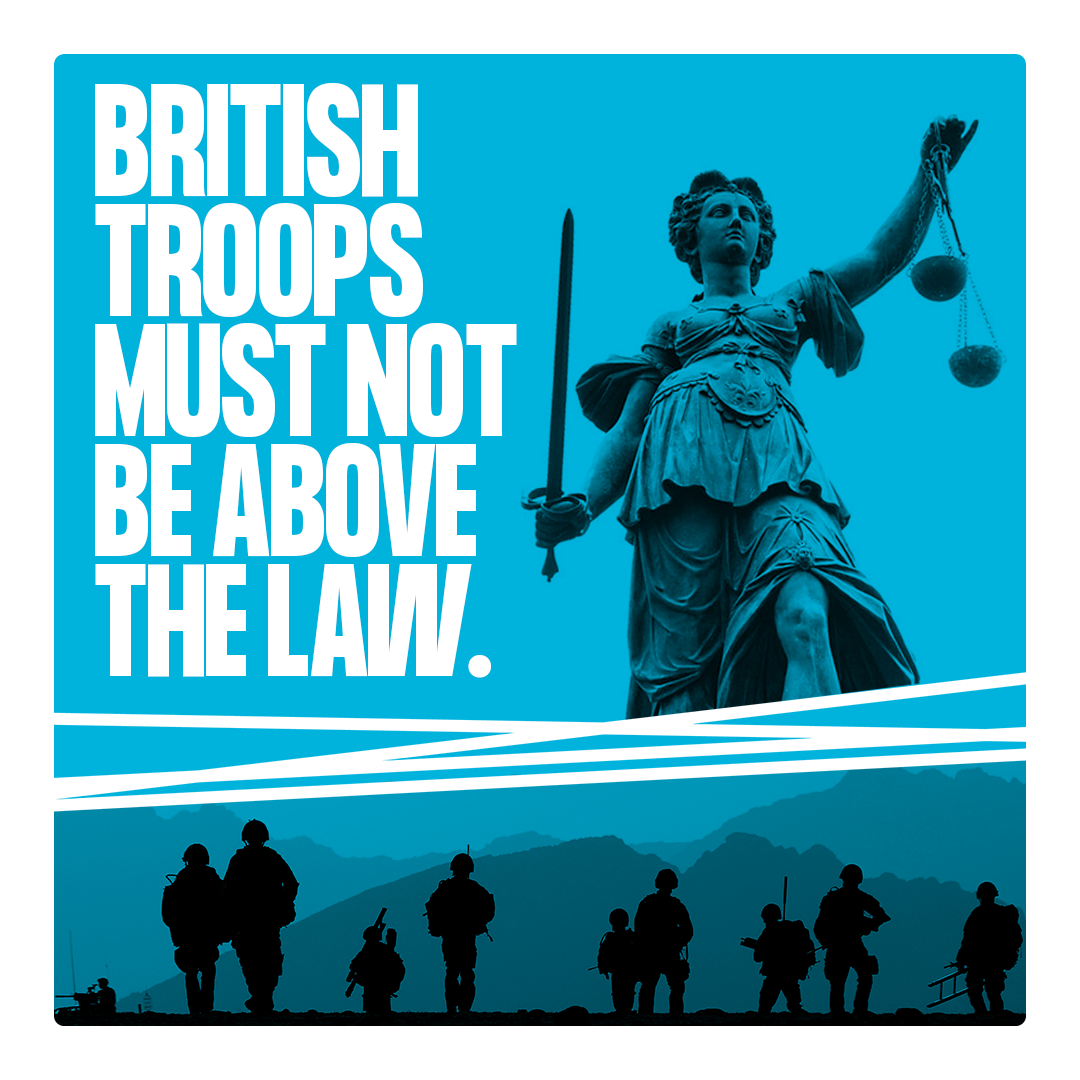
Don’t Undermine the Ban on Torture With a De Facto Amnesty
Listen to the REDRESS Podcast: The Overseas Operations Bill
The UK is respected in many places around the world for its adherence to the rule of law, and its critical role in the development of international law. Britain has long accepted that it is obliged to abide by customary international law, and the treaties which it has ratified. Since Nuremburg, the UK has been at the forefront of creating a presumption that certain international crimes are so terrible that they must be prosecuted wherever they take place, and whoever commits them. Britain took the lead in prosecuting such crimes and championing the mechanisms to do so: in Sierra Leone, the former Yugoslavia, Rwanda, Cambodia, before the ICC, and against General Pinochet.
But under the Overseas Operations Bill currently before Parliament, there will now be a presumption that British soldiers and commanders will not be investigated or prosecuted for torture, crimes against humanity, or even genocide. The authority of British diplomats to insist that other countries adhere to these standards will be severely diminished. This will have an impact for ordinary British citizens who are detained and tortured abroad.
In our view, this Bill is unnecessary, and breaches international legal standards that have become part of British law.
- The Bill violates the absolute ban on torture. Through the Geneva Conventions and the UN Convention against Torture the UK has accepted that there is an absolute requirement to investigate and prosecute torture. By establishing a triple locked presumption against prosecution, the Bill breaches those conventions.
- Genocide and Crimes against Humanity. The Bill also establishes that if a British General were to order genocide, then they would not subsequently be prosecuted, unless there are exceptional circumstances. This breaches the undertaking to prosecute the crime in Article 1 of the Genocide Convention, which the UK acceded to in 1970, and the obligation to prosecute under the Rome Statute of the International Criminal Court.
- There is no such thing as a “vexatious prosecution”. This phrase mixes up criminal prosecutions and civil claims, confusing the issues. Any prosecution for breaching the Geneva Conventions or the Torture Convention must have the consent of Suella Braverman, the Attorney General (s.53(3) ICC Act 2001 and s.135 Criminal Justice Act 1988) who would already be required to take into account all of the factors proposed in the Bill. Any prosecution would also have to satisfy both the evidential and public interest stages of the CPS Full Code test. The authorities are fully capable of preventing any so-called “vexatious” prosecutions.
- It undermines Command Responsibility. The Bill also means that we must presume that commanders will not be prosecuted for decisions that may have been made far from the fog of war. International law is clear that military and political superiors are those who bear the greatest responsibility for international crimes, and must be prosecuted.
- There is a risk of double standards. UK Ministers and officials will argue at the UN and elsewhere that torture and war crimes must be prosecuted in Syria, Iraq, Myanmar, and Belarus, while presuming not to prosecute British soldiers and commanders for the same offences.
- It creates a de facto amnesty. The UK is notoriously slow at delivering effective investigations into controversial incidents, such as the killing of Patrick Finucane in Northern Ireland, systematic beatings and ill-treatment in Iraq, or the torture of the Mau Mau in Kenya. In reality, no investigations will be completed within the five–year period mandated under the Bill, and so the presumption will apply to virtually all cases. This amounts to a de facto amnesty for war crimes and torture committed by British soldiers and commanders abroad.
The proponents of the Bill state that it is about protecting rank and file soldiers, but the reality is that there have only been a handful of prosecutions for international crimes over the last 20 years. And none of the civil legal claims have been brought against ordinary soldiers on operations overseas, but only against their political and military commanders in Whitehall, who have paid out more than £20 million in settlement of several hundred claims for unlawful detention and ill-treatment. Combat immunity already means that decisions made in the heat of battle cannot be brought before the courts, while mistakes in procurement, training, or detention centres can still be challenged.
The real problem is the poor quality and the slow pace of investigations, which unfortunately is not addressed by this Bill. If investigations are conducted promptly and effectively the first time round, then witnesses and suspects would not be repeatedly questioned and placed under suspicion.
REDRESS represents British citizens that have been tortured and ill-treated abroad. We work with the government and with parliamentarians to ensure that survivors are able to obtain justice for what happened to them. Our advocacy is bolstered by the high standards to which the UK holds itself. If Global Britain takes a different course, then we fear that our mission will become a lot more difficult.
Read our briefing paper on the Overseas Operations (Service Personnel and Veterans) Bill here.
